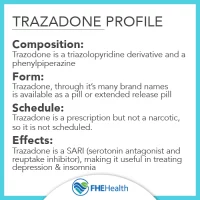Health
Contraindications of drinking green tea

Discover the contraindications of drinking green tea.
Drinking green tea in excess can cause some harmful side effects for the body, which are necessary to know
Green tea is one of the most popular in the world. In addition to having a characteristic flavor, its different properties make it a highly beneficial drink for health, mainly due to its antioxidant power. However, its consumption also includes a series of contraindications
Among the benefits of green tea highlights its ability to improve memory, helps lose body fat, increases physical performance, is stimulating, can prevent different types of cancer, and even reduce the risk of cardiovascular diseases.
Among all the types of green tea that exist, matcha stands out, a tea of oriental origin with important properties for health and that stands out for its powder composition. In recent years it has become the travel companion of celebrities, athletes, and famous people.
Contraindications of drinking green tea
Many people have incorporated green tea into their day-to-day. The truth is that it is a great choice since it can provide energy to face the workday, accelerate the metabolism, and can even help improve mood.
However, like any food, the consumption of green tea carries a series of contraindications that it is necessary to know.
Thus, from ‘Todo Disca’ we are going to expose some of the negative effects that the ingestion of this type of infusions can produce.
In this sense, researchers from the National Institute of Health of the United States affirm that the consumption of green tea mixed with different medications, such as contraceptive pills, antibiotics, stimulants, or alcohol can be harmful to health.
And these are some of the side effects that excess green tea consumption can generate for the body:
1. Irritability: Some people feel some discomfort at the time of their intake. That is to say, it produces an effect contrary to the one they seek at first.
2. Insomnia: Green tea can cause sleep problems for many people. And is that it is a stimulating drink that contains some doses of caffeine, although in a lower proportion than traditional coffee.
3. Dizziness and nausea: This infusion can be heavy for delicate stomachs and generate some type of gastrointestinal discomfort. Therefore, it is not advisable to take on an empty stomach.
4. Palpitations: Due to its stimulating characteristics, it can sometimes cause palpitations. Along these lines, experts recommend reading the indications and ingredients of all types of tea.
5. Disadvantages during pregnancy: Green tea is rich in tannins, so it can reduce the absorption of folic acid and iron. Due to this, this drink is not recommended for pregnant or lactating women.
Generally, green tea is an infusion with excellent health properties. In this way, moderate consumption usually brings different benefits to the body.
However, it is advisable to take these contraindications into account, and if you feel any side effects, see a medical specialist.
Through the following link, you will be able to know the contraindications to drink matcha tea, a variety of oriental origin widely established in Europe and whose consumption has become popular in recent years
Health
14 Benefits of Oolong tea and side effects Table of Contents
Health
7 Benefits of Epazote and side effects

Table of Contents
- Health Benefits of Epazote
- 1. Eliminate intestinal parasites
- 2. Benefits of epazote for immune system
- 3. Benefits of epazote for inflammation
- 4. Benefits of epazote for digestion
- 5. Benefits of epazote for blood pressure
- 6. Combat bacterial, viral, and fungal infections
- 7. Avoid osteoporosis
- Is epazote used to treat coronavirus?
- How to use epazote
- How to Make epazote tea
- Side effects of epazote
Discover the 7 shocking health benefits of Epazote and side effects.
Epazote, also known as paico or acahualillo, is a widely used medicinal plant, as its essential oils contain vermifuge, antibiotic, digestive properties, and strengthen the immune system.
This plant, whose scientific name is Chenopodium Ambrosioides, grows spontaneously in lands that surround the houses, it has elongated leaves of different sizes and dark green, its flowers are small and whitish.
Epazote can be bought in certain markets or health food stores, in its natural form, in dehydrated leaves, or essential oil.
Because it is considered a plant with a degree of toxicity, it should preferably be used under the guidance of a health professional, in addition to the use of tea from its leaves instead of essential oil, since it contains a higher concentration of potentially toxic substances.
Health Benefits of Epazote
Although epazote is a plant that is widely used in traditional medicine, it has few studies that confirm its properties in the body.
Despite this, several investigations have been carried out with this plant in animals, concluding that it has effects such as:
1. Eliminate intestinal parasites
This is one of the most popular uses of epazote and, according to some human studies, the use of this plant has a strong action against different intestinal parasites, such as worms and tapeworms.
This action seems to be related to the main active substance in epazote, ascaridol, which is similar in efficacy to some antiparasitic drugs, such as Albendazole.
2. Benefits of epazote for immune system
According to research carried out in animals, the use of epazote extract seems to be able to regulate the production of some cells important for the body’s defense, such as macrophages and lymphocytes, strengthening the immune system.
The mixture of epazote leaves with milk is popularly used to help in the treatment of respiratory diseases, such as bronchitis and tuberculosis, due to the union of the strengthening effects of the immune system and expectorants that these substances possess.
Another common use of epazote is in the relief of inflammation, mainly joint problems, such as osteoarthritis. Additionally, the plant also helps relieve pain from inflammation.
This analgesic action was observed in the use of the alcoholic extract of the plant, which seems to act on the NMDA receptors.
4. Benefits of epazote for digestion
Although there are no studies that prove the action of this plant on poor digestion, this is one of the popular uses in which it is used the most.
According to its use, epazote tea can be taken after large meals, to improve digestion, as it could be able to increase gastric juice production.
5. Benefits of epazote for blood pressure
In Morocco, epazote is frequently used to help treat high blood pressure and, according to studies in mice, this property is due to the stimulation of type 2 muscarinic receptors in the heart that slightly decrease the heart rate. , in addition to relaxing the heart muscle.
6. Combat bacterial, viral, and fungal infections
Both the use of epazote extract and essential oil has shown a powerful antimicrobial action that is capable of eliminating various types of bacteria, viruses, and fungi.
7. Avoid osteoporosis
In some investigations carried out in laboratory mice, the use of the hydroalcoholic extract of epazote was able to prevent the loss of bone density and can be applied to prevent the onset of osteoporosis, especially in women who are close to entering menopause.
Is epazote used to treat coronavirus?
A study carried out in 2020 by the Oswaldo Cruz Institute, confirmed the hypothesis that the flavonoids present in epazote may be able to prevent the replication of the new coronavirus, accelerating the recovery and cure of COVID-19.
However, the study was conducted on a computer model and has not been tested in a laboratory, nor living organisms.
For this reason, the dose necessary for treatment is not known, nor are the possible side effects.
For this reason, no health organ recommends the use of epazote as a treatment for COVID-19 until new studies are carried out.
How to use epazote
The most common way to take advantage of the properties of this plant is by infusing its leaves, preparing a tea:
Epazote tea: place a cup of the fresh plant with the seeds in boiling water and let it rest for 10 minutes. Afterward, strain and drink a cup up to 3 times a day.
In addition to infusion, another popular way to use epazote is an essential oil, however, its use must be guided by a naturopath, psychotherapist, or a health professional with experience in the use of medicinal plants.
How to Make epazote tea
Ingredients
8 large stems and leaves of fresh epazote
2 quarts boiling water
Procedure
- Add epazote to boiling water and let simmer for 2 minutes.
- ove from heat and let steep for another 3 minutes.
- Strain and serve.
Side effects of epazote include irritation of the skin and mucous membranes, headache, vomiting, nausea, palpitations, damage to the liver or kidneys, visual disturbances, and seizures, in case of doses higher than recommended or for a time. longer than 3 days in a row.
Is epazote abortifacient?
In high doses, the properties of epazote can act by altering the contractility of the body’s muscles; For this reason, it can have an abortive effect in certain people, not advising its use in pregnant women.
Contraindications
Epazote is contraindicated in pregnant women and children under 2 years of age.
This medicinal herb can be toxic, requiring a medical indication to establish the recommended dose
Health
Contraindications and side effects of Trazodone

Discover the Contraindications and side effects of Trazodone.
Trazodone is used in a wide variety of disorders, although it is an antidepressant.
Being depression one of the most prevalent mental disorders worldwide and one of the major causes of disability, its treatment is a matter that the scientific community has taken into account for many years.
The suffering it generates requires sometimes immediate attention since it is one of the disorders with the highest risk of suicide and that generates the most pain both for the person and for those around him.
The treatment of depression is carried out from different areas, one of them being psychopharmacology.
One of the drugs used in the treatment of depression is trazodone, which we are going to talk about in this article.
Trazodone: what type of substance is it?
Trazodone is a psychotropic drug classified within antidepressants, substances that generate a neurochemical change at the brain level, causing alterations in the levels of certain neurotransmitters, specifically serotonin.
Among antidepressants, it is part and is the main representative of the group of serotonin-2A antagonists and reuptake inhibitors or SARIs, a type of atypical antidepressant.
This drug was designed in Italy in 1966 under the assumption that depression could be based on the existence of low thresholds regarding the perception of pain and suffering, being the product of the lack of integration of aversive experiences.
Trazodone has proven to be an efficient and effective drug in the treatment of depression, reducing passivity and inactivity, as well as the discomfort and suffering associated with said ailment, and facilitating an increase in mood.
However, in addition to this, it also has an anxiolytic and tranquilizing action.
This substance is considered a second-generation antidepressant, along with specific serotonin reuptake inhibitors (SSRIs), with which it shares part of its mechanism of action, and different dual antidepressants.
Trazodone is sometimes considered to be dual as it has two different effects, although they focus on the same neurotransmission system, compared to the rest, and in addition to an antidepressant effect, it also has calming effects.
How does it work? Mechanism of action of the drug
As we have indicated previously, trazodone is classified as SARI, having a somewhat special mechanism of action among the rest of antidepressants.
Trazodone acts at the serotonergic system level (like most antidepressants) in two specific ways.
In the first place, this substance produces a blockage of brain serotonin reuptake, in such a way that said neurotransmitter remains in the synaptic space for a longer time.
This supposes that it has an agonist effect on the synthesis and maintenance of serotonin at the brain level, it increases its levels (which are decreased during the depression and this is something that correlates with the decrease in the mood).
The aforementioned mechanism of action is the one used by SSRIs, which is why these and trazodone are related and sometimes the latter is included among the first.
However, trazodone has a second effect that differentiates it from other drugs, and that seems contrary to the previous mechanism of action.
And it is also that it acts as an antagonist of serotonin 5-HT2A receptors, preventing or hindering these receptors from being activated.
This second aspect is what makes trazodone have a slightly different profile and effects than other antidepressants.
Regarding its interaction with other neurotransmitter systems, it does not present great anticholinergic effects, something that has made this drug a better option than tricyclics (although the doses must also be regulated) in patients with cerebrovascular and cardiac pathology and dementias.
However, it must be taken into account that it can generate arrhythmias.
It also has a minor effect on the adrenergic (blocking some receptors) and histaminergic systems, something that can lead to the generation of side effects.
Main indications
The main indication for trazodone is obviously, as an antidepressant that it is, major depression. Its effectiveness is also high in those depressions that appear together with anxiety symptoms.
Its clinical utility has also been observed in other disorders in which there are components of anxiety or that are based on it, such as generalized anxiety disorder, Obsessive-Compulsive Disorder, or bulimia.
In addition to this, it has also been observed to be useful for the treatment of substance addictions, being a good alternative for patients with withdrawal syndrome to benzodiazepines, and in the treatment of alcoholism (including the presence of delirium tremens).
Another of its indications is insomnia, which is effectively reduced by increasing sleep time without greatly affecting the deep sleep phase.
Although in general, most antidepressants can have the presence of erectile dysfunction or ejaculation problems as a side effect, this effect does not usually occur in trazodone, which seems to generate an increase in libido and is even used as a treatment indicated in erectile dysfunction.
Finally, trazodone has been applied (largely for its relaxing properties) in some cases of schizophrenia, motor problems such as Gilles de la Tourette syndrome, the presence of manic episodes in bipolar disorder, and the behavioral disorders of Alzheimer’s. although a greater amount of study is required regarding the latter.
On a medical level, it has also been used as a sedative in HIV-infected patients and diabetic neuropathies, as well as in other disorders that cause pain such as fibromyalgia. It has a very slight effect at the level of muscle relaxant.
Side effects and contraindications
Trazodone is a very useful drug that has been used in multiple pathologies and disorders, both mental and medical.
However, it can have undesirable consequences in the form of side effects and is even contraindicated in some situations and pathologies.
Secondary symptoms, sedation, and fatigue, the presence of headaches, nausea, and vomiting, gastric disturbances (diarrhea or constipation), appetite disturbances, sweating, tremors (which may lead to seizures in some cases), are common. ringing, numbness, and vision problems.
In some cases, it can also cause chest and muscle pain, altered consciousness, breathing problems, and arrhythmias. Like other antidepressants, trazodone can also contribute to the genesis of suicidal ideation in the first moments of use.
Although, unlike other antidepressants, it does not seem to generate contributes to improving cases of erectile dysfunction or ejaculatory problems, the use of trazodone has been observed and associated with the appearance of priapism, erections that do not disappear on their own. alone and that cause pain to those who suffer from them (which may require urgent and even surgical treatment).
Although it is sometimes used in dementias and has a lower risk than tricyclics of generating heart problems, it requires a high degree of caution in its use and dosage carefully prescribed by the doctor, since it can generate arrhythmias.
It is contraindicated in patients who have just suffered a heart attack, as well as in those with liver or kidney disease.
Caution should be exercised in subjects with bipolarity because if the medication is not regulated, the consumption of trazodone can cause a shift from depressive to manic phase.
It is also contraindicated in people who have suffered from priapism or have Peyronie’s disease.
Finally, it must be taken into account that trazodone can be excreted in breast milk and transmitted through the placenta so that pregnant and lactating women have contraindicated its use.
-

 Benefits4 months ago
Benefits4 months agoThe Benefits of Joining Gym Lumolog – Improve Your Fitness & Health
-

 Food1 year ago
Food1 year ago10 + Benefits of carrot juice and side effects
-

 Health1 year ago
Health1 year ago50 Super Healthy (And Very Often Cheap) Foods
-

 Health1 year ago
Health1 year ago5 Shocking health benefits of kinkeliba and side effects
-

 Food1 year ago
Food1 year ago8 shocking benefits of leek juice and side effects
-

 Health1 year ago
Health1 year ago15 health benefits of soursop leaves tea and side effects
-

 Health1 year ago
Health1 year ago15 Benefits of lipton tea and side effects
-

 Health1 year ago
Health1 year agoBenefits of guava leaves Sensually













